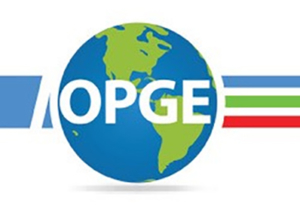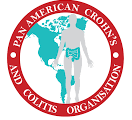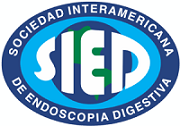Oncological outcomes in extended time intervals between preoperative chemoradiotherapy with capecitabine and surgery in operable rectal adenocarcinoma
DOI:
https://doi.org/10.47892/rgp.2018.381.861Palabras clave:
Neoadjuvant treatment, Chemoradiotherapy, Rectal cancer, Time IntervalsResumen
Objective: To assess whether extended time intervals (8-12, 13-20 and >20 weeks) between the end of neoadjuvant chemoradiotherapy and surgery affect overall survival, disease-free survival. Materials and methods: Retrospective study in 120 patients with rectal adenocarcinoma without evidence of metastasis (T1-4/N0-2/M0) at the time of diagnosis that underwent surgery with curative intent after neoadjuvant chemoradiotherapy with capecitabine and obtained R0 or R1 resection between January 2010 to December 2014 at the National Cancer Institute of Peru. Dates were evaluated by Kaplan-Meier method, logrank test and Cox regression analysis. Results: Of the 120 patients, 70 were women (58%). The median age was 63(26-85) years. All received neoadjuvant chemoradiotherapy. No significant difference was found between the association of the median radial (0.6, 0.7 and 0.8 cm; p=0.826) and distal edge (3.0, 3.5 and 4.0 cm; p=0.606) with time interval groups and similarly the mean resected (18.8, 19.1 and 16.0; p=0.239) and infiltrated nodules (1.05, 1.29 and 0.41); p=0.585). The median follow-up time of overall survival and desease free survival was 40 and 37 months, respectively. No significant differences were observed in overall survival (79.0%, 74.6% and 71.1%; p=0.66) and disease-free survival (73.7%, 68.1% and 73.6%; p=0.922) according to the three groups studied at the 3-year of follow-up. Conclusions: We found that widening the time intervals between the end of neoadjuvant chemoradiotherapy and surgery at 24 weeks does not affect the overall survival, disease-free survival and pathological outcomes. It allows to extend the intervals of time for future studies that finally will define the best time interval for the surgery.Descargas
Los datos de descargas todavía no están disponibles.
Métricas
Cargando métricas ...
Descargas
Publicado
15.05.2018
Cómo citar
1.
Muñoz MA, Palacios MG, Malca J, Mantilla R, Montenegro PC, Chavez I. Oncological outcomes in extended time intervals between preoperative chemoradiotherapy with capecitabine and surgery in operable rectal adenocarcinoma. Rev Gastroenterol Peru [nternet]. 15 de mayo de 2018 [citado 19 de febrero de 2026];38(1):9-21. isponible en: https://revistagastroperu.com/index.php/rgp/article/view/861
Número
Sección
ARTÍCULOS ORIGINALES
Licencia
Revista de Gastroenterología del Perú by Sociedad Peruana de Gastroenterología del Perú is licensed under a Licencia Creative Commons Atribución 4.0 Internacional..
Aquellos autores/as que tengan publicaciones con esta revista, aceptan los términos siguientes:
- Los autores/as conservarán sus derechos de autor y garantizarán a la revista el derecho de primera publicación de su obra, el cuál estará simultáneamente sujeto a la Licencia de reconocimiento de Creative Commons que permite a terceros compartir la obra siempre que se indique su autor y su primera publicación esta revista.
- Los autores/as podrán adoptar otros acuerdos de licencia no exclusiva de distribución de la versión de la obra publicada (p. ej.: depositarla en un archivo telemático institucional o publicarla en un volumen monográfico) siempre que se indique la publicación inicial en esta revista.
- Se permite y recomienda a los autores/as difundir su obra a través de Internet (p. ej.: en archivos telemáticos institucionales o en su página web) antes y durante el proceso de envío, lo cual puede producir intercambios interesantes y aumentar las citas de la obra publicada. (Véase El efecto del acceso abierto).



















 2022
2022 